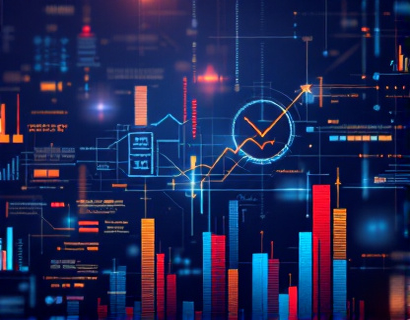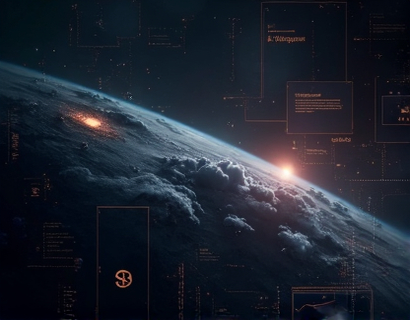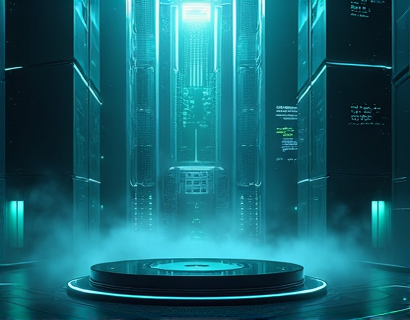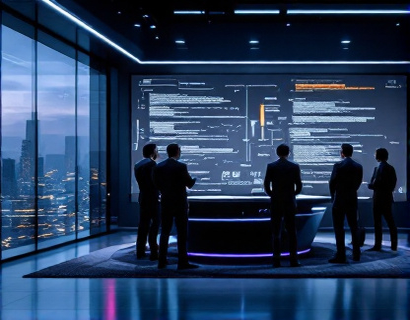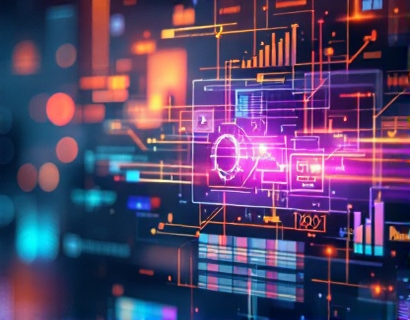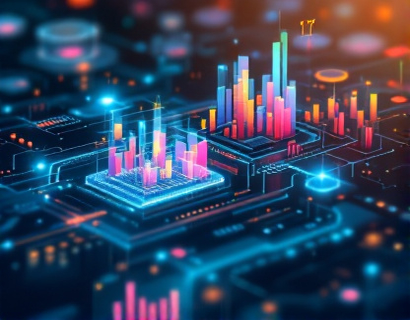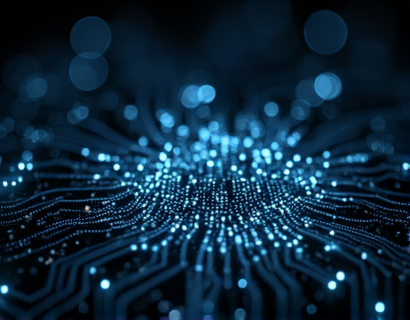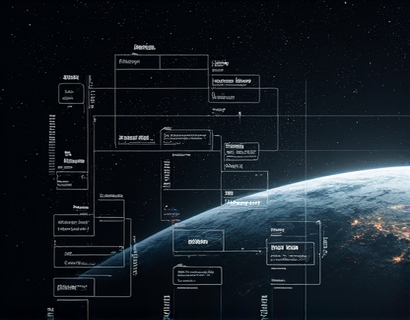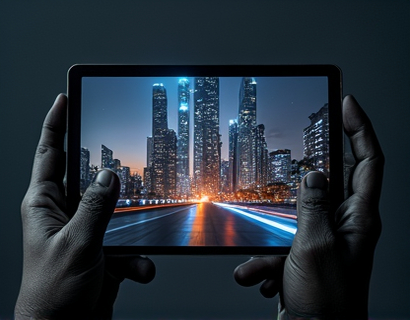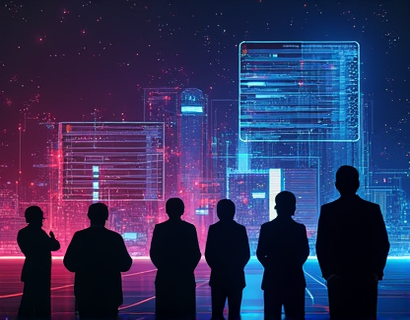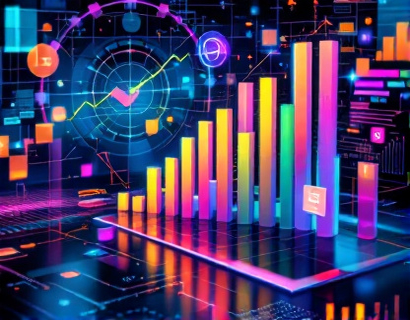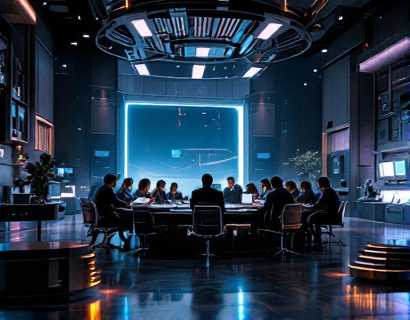AI and Crypto Synergy: Transforming Decentralized Productivity with Next-Gen Tech Solutions
The intersection of artificial intelligence (AI) and cryptocurrency is giving rise to a new era of decentralized productivity tools. This synergy is not just a technological curiosity but a transformative force that is redefining how we approach app innovation and task management. For tech-savvy individuals, AI enthusiasts, and early adopters of digital solutions, understanding this fusion is crucial. This article delves into the ways AI and cryptocurrency are combining to create more efficient, secure, and user-friendly decentralized applications, ultimately enhancing productivity for professionals and users alike.
Understanding the Basics: AI and Cryptocurrency
To grasp the synergy between AI and cryptocurrency, it's essential to understand each technology individually. Artificial intelligence refers to the simulation of human intelligence processes by machines, particularly computer systems. These processes include learning (the acquisition of information and rules for using it), reasoning (using rules to reach approximate or definite conclusions), and self-correction. AI technologies such as machine learning, natural language processing, and computer vision are rapidly advancing, finding applications in various sectors from healthcare to finance.
Cryptocurrency, on the other hand, is a digital or virtual currency that uses cryptography for security. It operates on a decentralized network, typically a blockchain, which ensures transparency and immutability. Bitcoin, launched in 2009, was the first and most well-known cryptocurrency, but thousands of others have since emerged, each with unique features and use cases. The decentralized nature of cryptocurrencies eliminates the need for intermediaries, reducing transaction costs and increasing financial inclusivity.
The Emergence of Decentralized Productivity Tools
The convergence of AI and cryptocurrency has led to the development of decentralized productivity tools. These tools leverage blockchain technology to create transparent, secure, and user-controlled environments. AI enhances these tools by providing intelligent automation, data analysis, and personalized user experiences. The result is a new generation of applications that are not only more efficient but also more resilient to censorship and manipulation.
One of the key benefits of decentralized productivity tools is their ability to operate without central authority. This means that users have greater control over their data and applications. For instance, decentralized storage solutions like IPFS (InterPlanetary File System) use blockchain to store and share files in a distributed manner, ensuring data integrity and availability. AI can optimize these systems by predicting usage patterns, compressing data, and enhancing search functionalities.
Enhanced Security Through Blockchain and AI
Security is a paramount concern in the digital age, and the combination of blockchain and AI offers robust solutions. Blockchain's inherent security features, such as cryptographic hashing and consensus mechanisms, provide a strong foundation. AI complements this by detecting and mitigating threats in real-time. For example, AI algorithms can monitor blockchain networks for unusual activity, identifying potential security breaches before they occur. This proactive approach to security is particularly valuable for decentralized applications that handle sensitive information.
Moreover, AI can enhance the user authentication process in decentralized systems. Biometric verification, powered by AI, can provide a secure and seamless way to access applications. This not only improves security but also enhances the user experience by eliminating the need for complex passwords.
AI-Driven Automation in Decentralized Workflows
Automation is a cornerstone of productivity, and AI takes this to new heights in decentralized environments. Smart contracts, self-executing contracts with the terms directly written into code, can be enhanced with AI to perform more complex tasks. For instance, AI can analyze data inputs and automatically trigger smart contracts based on predefined conditions. This reduces the need for manual intervention and ensures that processes are executed efficiently and accurately.
Consider a decentralized project management tool. AI can automate task assignments based on team members' availability and expertise, track progress, and even predict potential bottlenecks. This level of automation not only saves time but also reduces human error, leading to higher productivity and better outcomes.
Personalized User Experiences Through AI
AI's ability to analyze vast amounts of data and derive insights makes it an ideal partner for creating personalized user experiences. In decentralized productivity tools, AI can tailor the interface and functionalities to individual user preferences and behaviors. For example, an AI-powered decentralized calendar app can learn a user's scheduling habits and suggest optimal meeting times, taking into account time zone differences and availability.
Furthermore, AI can provide real-time translations and language support, breaking down communication barriers in global teams. This ensures that users from different parts of the world can collaborate seamlessly, enhancing the overall productivity of decentralized workflows.
Decentralized Marketplaces and AI-Enhanced Matchmaking
Decentralized marketplaces are another area where AI and cryptocurrency synergy shines. These platforms connect service providers and clients without intermediaries, leveraging blockchain for secure transactions and AI for efficient matchmaking. AI algorithms can analyze user profiles, project requirements, and past performance to suggest the most suitable matches. This not only streamlines the process but also increases the likelihood of successful collaborations.
For instance, a decentralized freelance marketplace can use AI to match clients with freelancers based on skill sets, ratings, and availability. The use of smart contracts ensures that payments are made only upon completion of agreed-upon milestones, reducing the risk of fraud and ensuring fair compensation for both parties.
Challenges and Considerations
While the potential of AI and cryptocurrency in decentralized productivity is immense, there are challenges that need to be addressed. Scalability remains a significant issue for blockchain technologies. As the number of transactions increases, blockchain networks can become slow and expensive. AI can help mitigate this by optimizing transaction processing and predicting network congestion, but a comprehensive solution requires ongoing innovation in blockchain technology.
Another consideration is the regulatory landscape. The intersection of AI and cryptocurrency operates in a relatively uncharted legal territory. Ensuring compliance with various regulations while maintaining the decentralized nature of these tools is a complex task. Users and developers must stay informed about legal requirements and adapt their approaches accordingly.
Future Prospects: The Next Generation of Decentralized Tools
The future of decentralized productivity tools powered by AI and cryptocurrency is promising. As technology advances, we can expect more sophisticated AI algorithms that can handle even more complex tasks on blockchain networks. The integration of edge computing and AI will further enhance the performance of decentralized applications, making them more responsive and efficient.
Moreover, the rise of decentralized finance (DeFi) and non-fungible tokens (NFTs) is creating new opportunities for productivity tools. AI can help users manage and optimize their DeFi portfolios, while NFTs can be used to represent unique digital assets or credentials within decentralized platforms. This convergence opens up a world of possibilities for creative and innovative applications.
In conclusion, the synergy between AI and cryptocurrency is transforming decentralized productivity in profound ways. By combining the strengths of both technologies, we are witnessing the emergence of more secure, efficient, and user-friendly tools. For tech enthusiasts and early adopters, this is an exciting time to explore and contribute to this evolving landscape.



